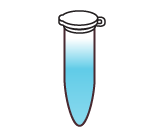Rabbit Polyclonal Antibody Production
abm offers the most competitive price for quality, custom, polyclonal antibody production. Our services include peptide synthesis, immunization of 2 rabbits, and peptide affinity purification of positive serum. It is all included and there is absolutely no hidden additional cost. Based on our experience, the success rate of generating a quality polyclonal antibody is over 70% with one peptide antigen and over 95% for two peptide antigen.
Additional Resources:
"I am a fan of abm: great product quality, great price, great rewards and great experience."
Dr. Vincent Emond, Centre de recherche du CHU de Québec CHULService Details
| Description | Cat. No. | Unit | Price | |
|---|---|---|---|---|
| Standard Service |
|
C090 | 1 Service | Inquire |
| Complete Service |
|
C091 | 1 Service | Inquire |
| Phospho-Peptide Service | Production of an antibody against a phosphorylated peptide. | C089 | 1 Service | Inquire |
Additional Info
Coming SoonRelated Products
FAQs
| Can you produce an antibody against a native protein? |
|
Yes, however, in order to guarantee the antibody is effective against the native protein, purified native protein must be used for immunization. Recombinant protein or peptide extracts can also be used to immunize, but we cannot guarantee these will be effective against the native protein due to folding and other conformational concerns. Our service guarantees that the immunized protein (native or recombinant) or peptide will be recognized by the produced antibody.
|
| What assay do you use to confirm the functionality of the produced antibody? |
|
For rabbit polyclonal antibody servies, we guarantee the antibodies will work against the designed peptides in ELISA format. Due to experimental variations, we do not guarantee downstream applications. It is important to understand that the customer takes full responsibility for the peptide designs.
|
Citations
| 01 | Ko, FC et al. "PKA-induced dimerization of the RhoGAP DLC1 promotes its inhibition of tumorigenesis and metastasis." Nat Commun 4:1618 (2013). PubMed: 23511482 |


